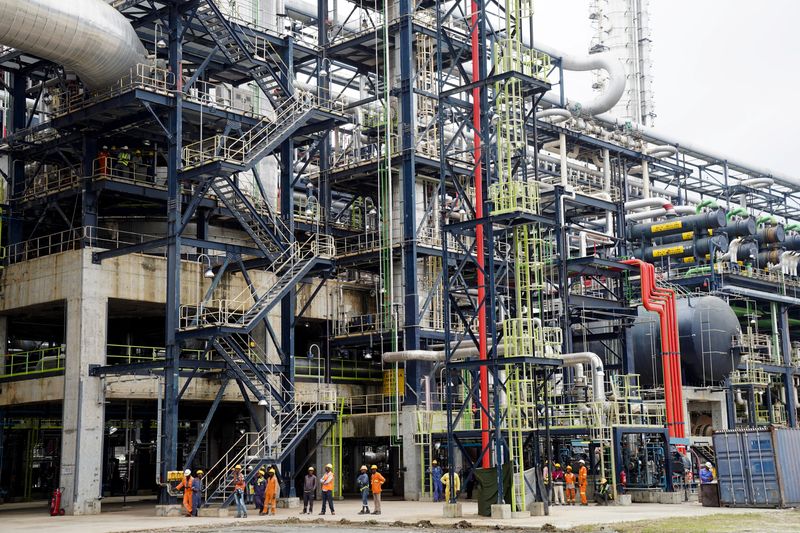By Macdonald Dzirutwe
LAGOS – Nigeria’s Dangote refinery is in talks with Libya to secure crude for the 650,000 barrels per day (bpd) plant and will also seek Angolan oil, a senior executive said, as it seeks to overcome problems with domestic supplies.
The $20 billion refinery, built by Africa’s richest man Aliko Dangote on the outskirts of Lagos is Africa’s largest and is designed to end Nigeria’s dependence on imported fuels because of insufficient refining capacity.
Since Dangote began operations in January, it has been unable to get adequate crude supplies in Nigeria, which, although Africa’s biggest oil producer, is struggling with theft, pipeline vandalism and low investment.
RELATED: Nigerian kidnappers demand E11,5 million for release of school hostages
Dangote has resorted to importing crude from as far as Brazil and the United States.
“We are talking to Libya about importing crude,” Dangote refinery senior executive Devakumar Edwin told Reuters late on Saturday. “We will talk to Angola as well and some other countries in Africa.”
He declined to give detail about the talks, but said international traders and oil companies were among the biggest buyers of Dangote’s gasoil, much of which was being exported.
“The biggest off-takers are the two big traders Trafigura and Vitol and BP and, to some extent, even TotalEnergies. But all of them are saying they are taking it to offshore,” Edwin said.
Traders and shipping data have shown that Dangote is increasing gasoil exports to West Africa, taking market share from European refiners.
RELATED: Nigeria inflation climbs to 28-year high in March
Edwin said Dangote’s oil trading arm was operational, with staff in London and Lagos, to help manage supplies and sell products. Reuters first reported the planned trading arm in March.
Nigeria’s upstream regulator has clashed with Dangote, saying the sulphur content in its gasoil was above the required limits of 200 parts per million (ppm).
Aliko Dangote has denied that, saying the sulphur level was higher when production started, but had fallen to 88 ppm and would sink to 10 ppm in early August as output rises. (Reuters)


